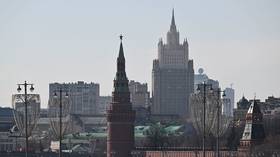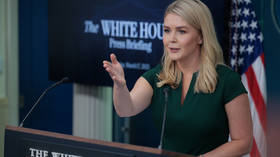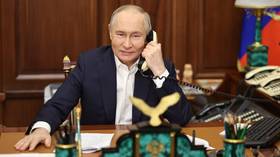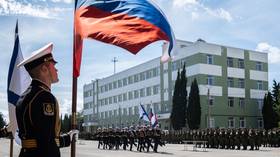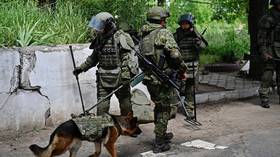Do the lessons of the Holocaust apply to Palestinians?
Outside the US Memorial Holocaust Museum, a group of American activists urges visitors to include Palestinians in Gaza today when they think about injustices.
In Washington, DC, it’s not uncommon to see public signs of support for Israel – such as “We Support Israel” banners outside local synagogues. Although you may not see such banners outside the White House or the US Capitol building, experts say American lawmakers adhere to this motto, too.
“The United States basically has adopted a policy of supporting everything Israel wants,” said M.J. Rosenberg, a former pro-Israel lobbyist and senior fellow on foreign policy at Media Matters for America. “When it comes to the Israeli-Palestinian conflict, and the situation in Gaza, there’s very little sympathy in the US for the people in Gaza at all.”However, outside the US Holocaust Memorial Museum, each week a small group of protesters march with signs that show sympathy and support for Palestinians and are critical of Israel’s policies in Gaza.
Visitors come to the Holocaust Museum to remember and learn from the persecution of Jews by the Nazis. And the museum urges patrons to “think about what they saw,” in an effort to stop hatred and injustice and other crimes against humanity throughout the world.
Outside the museum, Steve France and his fellow activists try to convince people that this message should apply to Palestinians in Gaza, too, who they believe are suffering at the hands of Israel. Last year more than 1,100 Palestinians were killed in the military conflict between Israel and Gaza. And Gaza’s borders are closed, limiting the food and supplies allowed in or out of the region.
“Their situation is that the children and their mothers are traumatized. They’re suffering from post-traumatic stress disorder, and the children are malnourished,” said France.
“The Israeli’s are blockading the place. It’s been going on for years, a terrible humanitarian crisis, and the United States just looks the other way,” said M.J. Rosenberg.
Israel’s supporters argue that although life is difficult in Gaza, Israel needed to take these measures to protect the country from Gaza’s leaders – members of Hamas.
“Israel went into Gaza to defend its citizens from the thousands of missiles that were being fired [into Israel] for years. It’s up to Hamas to stop the terrorism out of Gaza where there is no Israeli presence,” said Meagan Buren, research and training director at the non-profit organization The Israel Project. “I think closing its borders to prevent the smuggling of weapons and funds into the hands of terrorists is among the things [Israel] is going to need to do to protect its citizens.”
Outside the Holocaust Museum, protester Steve France encounters indifference, disgust, and support from people passing by. But for France, trying to get people to think about the struggles of Palestinians makes him feel like he’s doing something to help them since he believes his government will not.
You can share this story on social media:
Dear readers! Thank you for your vibrant engagement with our content and for sharing your points of view. Please note that we have switched to a new commenting system. To leave comments, you will need to register. We are working on some adjustments so if you have questions or suggestions feel free to send them to feedback@rttv.ru. Please check our commenting policy



